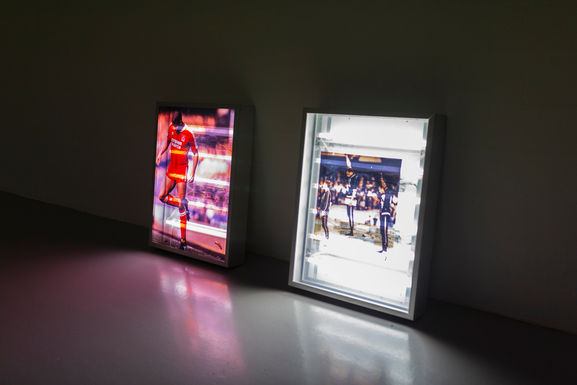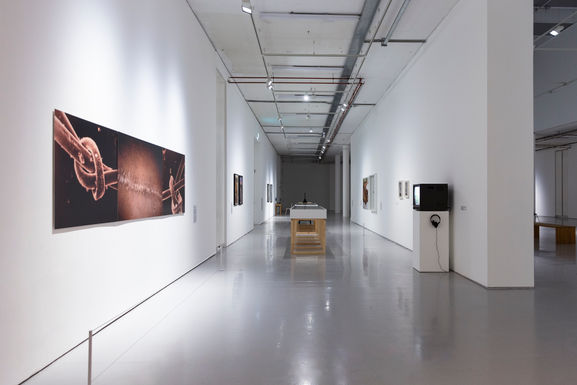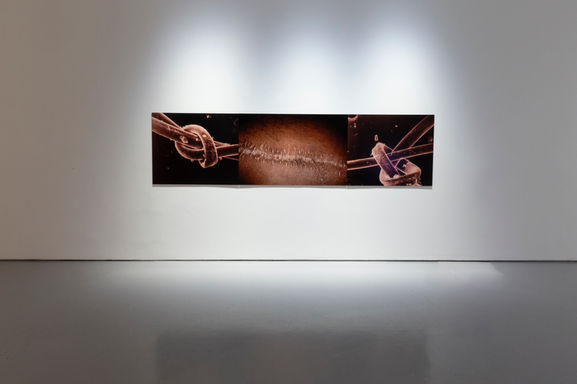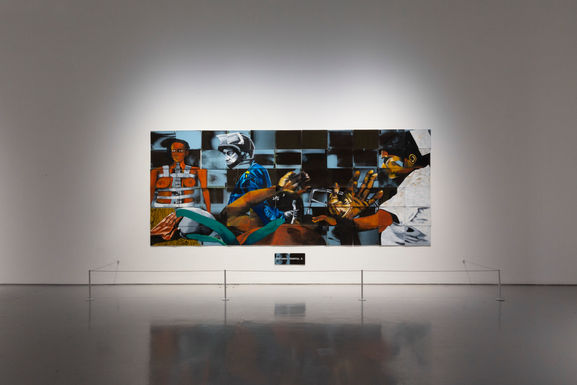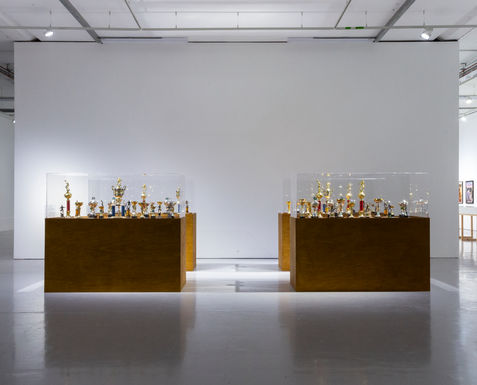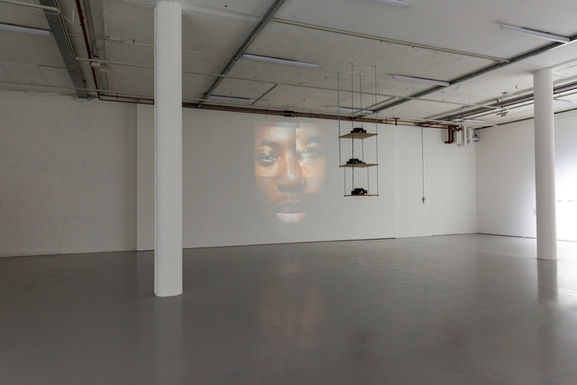An Interview With...
Nicole Yip & Robert Leckie
Curators
Donald Rodney:
Visceral Canker
Spike Island, Bristol
2024
Travels to; Nottingham, late 2024
London, 2025

What inspired the timing of this exhibition, Visceral Canker?
To be honest, the timing has largely been shaped by the practicalities of pulling the exhibition together.
It’s been four years in the making and is something of a ‘dream’ show for the both of us. The four-year timeline reflects the time that has passed since Robert first started to get to grips with his role as Director of Spike Island, and since Nicole became Chief Curator at Nottingham Contemporary. It’s only thanks to these roles and institutions that we have both had the space and resources to make an exhibition of this scale and ambition happen.
What is it about Donald Rodney’s life and work that you think has resonance today?
Donald was an exceptional artist making poignant and experimental work throughout his life about social and political issues that still persist. There are echoes of his lightbox work about the media representation of Black sportsmen, John Barnes (1991), for example, in the racism experienced by the Black football players that missed penalties while representing England at the Euro 2020 final. And Donald was clearly ahead of his time when it comes to making and thinking about art in relation to his experiences of illness, disability and hospitalisation, as evidenced by both the subject and construction of his large-scale x-ray works, such as Britannia Hospital 3 (1988). On a personal level, though Donald did achieve a degree of success during his lifetime, this did not necessarily translate into a sustainable career, which will no doubt resonate with younger artists working today.
Donald was an early adopter of technology in his art practice. Could you provide some insight into how innovative he was in integrating technology into his work?
Two of the best examples are Psalms (1997) and Autoicon (1997-2000), which were both conceived in the late 90s, and produced with the help of Mike Phillips, Gary Stewart and other friends. Psalms comprises an automated wheelchair that moves autonomously around the gallery space, while Autoicon is a digital artwork that engages users in a text-based ‘chat’ where the responses include images, videos, and audio clips relating to Donald and his life. Though the technology has of course now dated significantly, the intellectual and technological ambition of both works makes clear that Donald was far ahead of his time.
We can draw parallels between how Donald's health and well-being were managed during his life and how his work has been mishandled, such as being lost or damaged. What are your thoughts on this?
Donald’s work Flesh of My Flesh (1996) is the most explicit when it comes to detailing his own experiences of medical malpractice. It shows an image of a raised scar on his right thigh, sewn up hastily after surgery by a white doctor. It’s a gut-wrenching image that’s hard to find a parallel for in how his work has been archived and cared for over the years. First and foremost, it’s important to say that the Donald Rodney Estate, led by Donald’s former partner Diane Symons, has done incredible work to conserve Donald’s legacy and place his work in important national collections. It is also clear that Donald himself was perhaps not always the best archivist of his own work, often giving things away or leaving things behind when he had to move studios, for example. With this mind, the only seed of truth in your question is around how the state-funded collections that own Donald’s work often no longer have the means to conserve it effectively following decades of austerity, meaning that we’ve had to do a significant amount of fundraising to be able to conserve much of the work before showing it.
What were some of the challenges in putting Visceral Canker together?
The fragile nature of the estate has been the greatest challenge overall, because much of the work required conservation or has significant constraints around how it can be shown. This means that the exhibition will have to adapt slightly as it tours to the different venues, but thankfully that also presents an opportunity to bring in additional archive materials that are particularly relevant to each location.
What kind of surprises did you come across when researching Donald’s work?
That so much of it no longer exists! As we’ve said before, one of our main research sources initially was the Doublethink book, edited by Richard Hylton and published by Autograph in 2003. It includes many, many photographs from the Donald Rodney Estate archive of works that have either been lost, destroyed or subsequently recomposed as different works, but to our frustration their current status isn’t always clear when you’re browsing through.
How do you envision the role of this exhibition for Donald’s legacy in the broader context of contemporary British art?
We hope that it helps to cement Donald’s reputation as a vital figure in British art history. It’s clear from the initial reaction to the project that his work and ideas continue to be an inspiration for many artists, art historians, curators and audiences today.
What has been the most rewarding part of curating this exhibition for you personally?
To have had the opportunity to invest time and energy in thinking about Donald’s work and its legacy, and to learn (and hear many wonderful anecdotes!) directly from the artists, technologists, art historians, friends and family that were close to, and supportive of, Donald throughout his life.
Can you share any memorable moments or feedback you’ve received about the show?
Honestly the best feedback we have received is from Diane Symons and Keith Piper from the Donald Rodney Estate. They have both helped and challenged us throughout the development of the project, and we couldn’t be happier that they are impressed by the result.
What do you hope will be the lasting impact of Visceral Canker?
Fundamentally, that Donald’s work becomes more widely known and appreciated. We’re also hoping to do a book that brings together new and existing scholarship around Donald and his work, so watch this space!
Donald Rodney: Visceral Canker at Spike Island, Bristol closes on 8th September 2024. Free entry. The exhibition travels to Nottingham Contemporary in late September, and to London in 2025.



